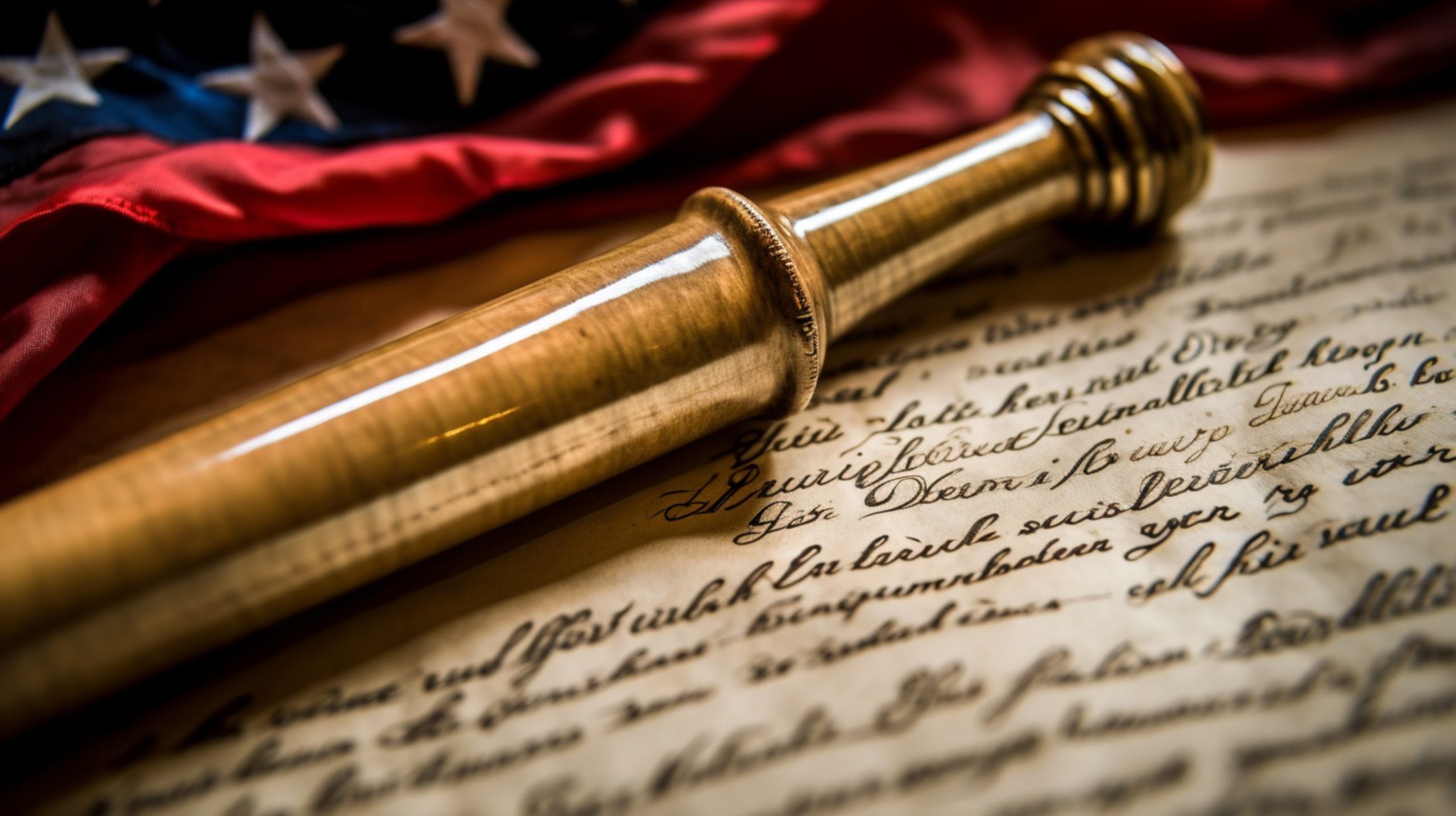1776 - The Constitution of the United States Adopted by the Constitutional Convention

The Constitution adopted by the Convention on September 17,
1787, was signed by all but three delegates and ultimately ratified by
all 13 states. The “Connecticut Compromise” basing representation in
the House on population and providing each state equal votes in the
Senate is embodied in Article I, Sections 2 and 3. The Brearley
Committee can take credit for most of Article II, which creates the
electoral college, defines the powers of the presidency, and provides
for impeachment proceedings. An independent judiciary is created in
Article III, although no mention is made of the power of judges to
declare laws unconstitutional; the delegates regarded that power to be
understood in the wake of Judge Brearley’s Holmes v. Walton decision
and similar cases in other states.
We, the people of the United States, in order to form a more perfect
Union, establish justice, insure domestic tranquility, provide for the
common defense, promote the general welfare, and secure the blessings
of liberty to ourselves and our posterity, do ordain and establish this
Constitution for the United States of America.
Article III
Section 1- Judicial powers. Tenure. Compensation.
The judicial power of the United States, shall be vested in one supreme court, and in such inferior courts as the Congress may, from time to time, ordain and establish. The judges, both of the supreme and inferior courts, shall hold their offices during good behavior, and shall, at stated times, receive for their services a compensation, which shall not be diminished during their continuance in office.
Section 2 – Judicial power; to what cases it extends.
Original jurisdiction of Supreme Court Appellate. Trial by Jury, etc. Trial, where
- The judicial power shall extend to all cases, in law and equity, arising under this constitution, the laws of the United States, and treaties made, or which shall be made under their authority; to all cases affecting ambassadors, other public ministers and consuls; to all cases of admiralty and maritime jurisdiction; to controversies to which the United States shall be a party; to controversies between two or more states, between a state and Citizens of another state, between Citizens of different states, between Citizens of the same state, claiming lands under grants of different states, and between a state, or the Citizens thereof, and foreign states, Citizens or subjects.
- In all cases affecting ambassadors, other public ministers and consuls, and those in which a state shall be a party, the supreme court shall have original jurisdiction. In all the other cases before-mentioned, the supreme court shall have appellate jurisdiction, both as to law and fact, with such exceptions, and under such regulations as the Congress shall make.
- The trial of all crimes, except in cases of impeachment, shall be by jury; and such trial shall be held in the state where the said crimes shall have been committed; but when not committed within any state, the trial shall be- at such place or places as the Congress may by law have directed.
Section 3 – Treason defined. Proof of. Punishment of.
- Treason against the United States shall consist only in levying war against them, or in adhering to their enemies, giving them aid and comfort. No person shall be convicted of treason unless on the testimony of two witnesses to the same overt act, or on confession in open court.
- The Congress shall have power to declare the punishment of treason, but no attainder of treason shall work corruption of blood, or forfeiture, except during the Efe of the person attainted.
